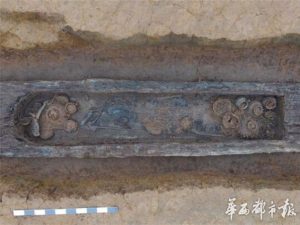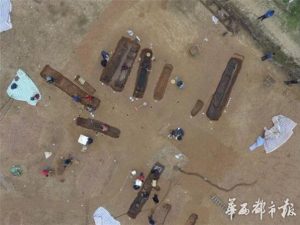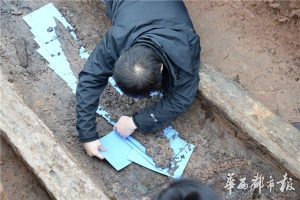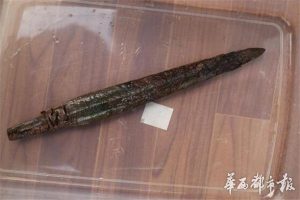Archaeologists discovered a cemetery filled with boat coffin burials near the Feihu village, southwest China’s Sichuan Province. The burials are believed to date 2200 years to the past.

The cemetery is said to cover an are of 10000 square metres and contain 60 tombs in four rows. Since January archaeologists have excavated 47 tombs. The burials date to the late Warring States Period (475 – 221 BC) and the Qin Dynasty (221-206 BC). The boat-shaped coffins are four to seven meters long and made of nanmu, a type of wood that was frequently used for boat building.


The cemetery is believed to be connected with the indigenous Shu culture and incorporates mixed elements of the Chu state (1030 BC-223 BC) and Qin Dynasty period material culture. Pujiang County, where the discovery was made, was part of the Shu Kingdom, which has no written record of its history. So far workers have dug up more than 300 pieces of pottery, bronze, iron and bamboo as well as weapons, coins and 11 seals. In two tombs ten bamboo baskets of well-preserved grain and a delicate string of glass beads on the waist of an individual were discovered.


(after China Daily)